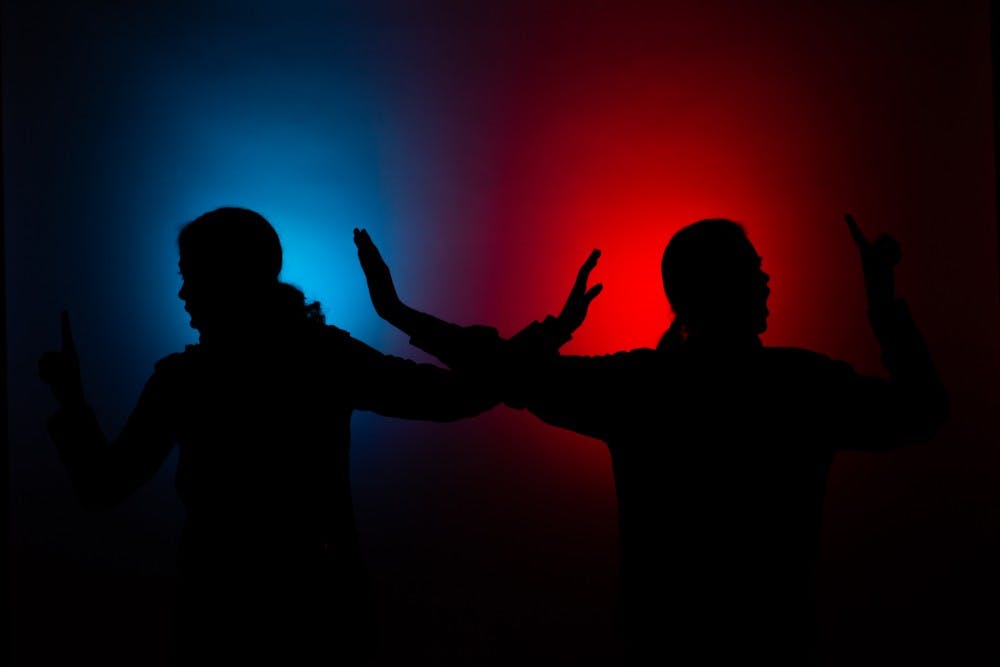Researchers found that students were less comfortable with speaking about controversial topics in class than outside of class.
“I think that some of that has to do with general comfort and participating, and some of it has to do with the political atmosphere on our campus, so I think there are a couple factors that concern me there,” Ekstrand said.
However, the survey found that students are open to the expression of unpopular opinions on campus, with 86 percent of students supporting the invitation of speakers with diverse views.
Overall, Ekstrand said, the new executive order seems superfluous, given the policies and legislation already in place to protect free speech on college campuses.
While UNC undergraduates seemingly embrace free speech, recent incidents have drawn attention to what some consider as censorship by UNC administration — not right-leaning views, but rather, liberal expression, like senior studio art major Annie Simpson’s “UNC Anti-Racist Jeopardy” website.
“I read web.unc terms and conditions before I hosted anything, and it said that everything hosted on the website needed to be university-related, academic research work, so I was like, 'Cool, I’m in the clear,'” Simpson said. “It’s things about the University, and it’s research-related work. As an artist, it’s part of my artistic portfolio, so it’s all good.”
UNC took down her website, as well as a UNC BOG Wikipedia-style page Simpson had also hosted on UNC’s servers, claiming the site was a personal project.
An email chain, obtained by Simpson through a public records request, showed University administrators discussed how they could apply sections of their server-use policies to Simpson’s sites. One administrator, Kate Hash, added that ITS most often enforced “personal projects” violations for professors seeking to use UNC servers for their own businesses/consulting projects.
With the help of FIRE, a nonpartisan organization that focuses on protecting rights at colleges and universities and Simpson’s attorney, Pam Starsia, Simpson’s website went back up in February, after being taken down in December of 2018.
“It was so infuriating,” Simpson said. “But also par for the course for UNC’s track record of silencing student activism this year and throughout the rest of the University, so I don’t know why I’m surprised.”
The University has also taken down banners hung in the windows of the Campus Y, said Kipp Williams, a co-president of the Campus Y and a sophomore computer science student. Williams said the University justifies taking down the banners with the facilities use policy, but only selectively.
“We had a banner criticizing the University, and we hung it right when they were having their capital campaign right in that part of the quad right there,” he said, gesturing to Polk Place and South Building. “That was taken down 10 minutes after it was put up. They watched us put it up, and then they came upstairs and took it down.”
To get the day's news and headlines in your inbox each morning, sign up for our email newsletters.
On the topic of controversial speakers, Williams said he was in favor of having a wide diversity of speakers, and pointed out that the North Carolina legislature was once in favor of banning speakers from campus, and that times and politics can change views on who benefits from free speech protections.
“Back in the 60’s, students invited communist speakers to campus, and they were banned from campus, and the legislature here passed a ban on communist speakers,” Williams said. “They couldn’t even step foot on campus. So, the students had to, they invited them and they stood right on the edge of Franklin, and thousands of students came to hear them speak.”
Despite the University’s removal of the Campus Y’s banners, Williams said he doesn’t feel like his views are suppressed in classes.
“When I talk about queer rights, or trans rights, I don’t feel comfortable discussing those in all spaces, but in class and on this campus, I definitely feel safe, and it has not been that way for my whole life,” Williams said.
So, if most students are supportive of free speech, then why do many conservatives, including the President, feel as though free speech is under attack by liberal students and professors?
Perhaps it’s a difference among generations, Ekstrand said.
“It’s a mistake to say that students don’t have strong free speech principles,” Ekstrand said. “They care about free speech, and they care about it a lot. They’re even OK with offensive speech, but there is a line that college students draw that may be a line that is a little more strict than, say, my generation or generations older than I am, so for older generations that seems to be a concern. I’m not personally convinced that it’s a huge problem, but it is a source of discussion and debate.”
university@dailytarheel.com




